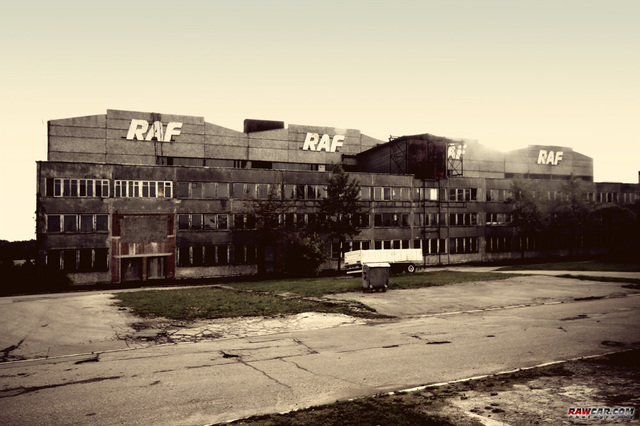Why doesn't Russia join the EU?
If they become one of them, then they would not be enemies anymore, right?
They have already joined the G-20. Then, they could also join EU, right?
Why doesn't Russia join the EU?
If they become one of them, then they would not be enemies anymore, right?
They have already joined the G-20. Then, they could also join EU, right?
The European Union has very strict standards for joining it, both economical and political. This includes inflation rate, budget deficit, democracy (as the EU understands it), gay and human rights etc. Russia does not satisfy them.
Also the EU has very strict trade, industrial and ecological standards, such that Russian industry, agriculture and infrastructure does not satisfy them. For instance, Russia would have to scrap most of its currently used automobiles. The cost for the industry to catch up with the EU standards is enormous. This was also the argument against association agreement in Ukraine. Some of the new EU members (Bulgaria, Baltic states, East Germany to an extent) lost nearly all of their industries after joining after they were unable to compete with the EU industries or were unfriendly fused. For instance, Latvia had lost its automobile and electronics industries.
Abandoned RAF factory in Riga, 2010

And its last produced model, RAF Stils M2

Additionally, any EU member state can veto Russian participation, and no doubt the Baltic states and/or Poland will do it.
Besides this, there is a great anti-EU and anti-Western sentiment in Russia, especially concerning some of the EU values like gay rights but also including political and economic.
Russia is a European nation. 75% of its population resides west of the Ural mountains. It shares Europe's Christian and Enlightenment heritage. It is a member of the Council of Europe and a party to the European Convention on Human Rights.
The rest of Eastern Europe has clamored to join the Union, so why not Russia?
A. Russia is not interested
Modern Russia (much like the UK) has outdated pretensions to great power status. The current leadership regards the dissolution of the Soviet Union as a "catastrophe". They see their "near abroad" not as true sovereign nations but as part of a natural Russian sphere of influence.
They hope to establish their own regional power block, led by Russia, within the shell of her former empire, either through soft power organisations like the Eurasian Economic Union, or outright military aggression against Ukraine, Georgia and other nations.
The current leadership also apparently believes that the Cold War is an ongoing affair, and that Russia remains engaged in a zero-sum power struggle with North America and Western Europe.
In short, Russia's leaders don't wish to join the EU because it would mean accepting their nation is no longer a great power, entering into an equal partnership with a number of former colonies, and sharing sovereignty with perceived enemies in Paris and Berlin.
B. Russia is currently ineligible
EU membership is open only to nations that respect democracy, human rights and the rule of law. Under her current leadership Russia fails all three of these criteria.
Once they have joined, the EU apparently has no effective means of ensuring that members remain liberal and democratic. But that is another subject.
In its 2019 report Freedom House classifies Russia, under its current leadership, as "unfree", summarising as follows:
Power in Russia’s authoritarian political system is concentrated in the hands of President Vladimir Putin. With loyalist security forces, a subservient judiciary, a controlled media environment, and a legislature consisting of a ruling party and pliable opposition factions, the Kremlin is able to manipulate elections and suppress genuine dissent. Rampant corruption facilitates shifting links among bureaucrats and organized crime groups.
It is worth reading in full: Freedom in the World 2019 - Russia
Anixx already covered a lot of ground (+1) but note that the G-20 and EU are not alike at all.
The G-20 is a sort of discussion forum, where leaders occasionally agree on vague non-binding declarations. Becoming a member is just a matter of being invited to the summits, there isn't even a treaty or permanent staff of any kind.
The EU is first and foremost a common market based on a massive set of norms regulating just about any aspect of an economy (with institutions to maintain them and a few other things around that). Beside negotiating a complex treaty that has to be approved by all 28 current members, joining the EU therefore requires adopting all the rules developed since 50+ years (it's called the acquis). You can just skim through this Wikipedia article about EU enlargement to get a feeling for the complexity of the process.
Even if there was interest on both sides (which does not seem to be the case to say the least), it would be very difficult for Russia to do that. Even getting to the point where Turkey is at the moment would seem far from trivial.
While there are official standards that a country must meet to be eligible for membership they aren't always enforced if the political will to accept them is there (for example it was an open secret that Greece was cooking its books long before any crisis hit but nobody cared) and some countries can get all sorts of special deals (just look at the UK) too.
So the real reason is that the political climate is opposed to this and will be for the conceivable future (aka as long as the EU is the USA's lap dog).
On the Russian side the reasons are similar....
If there ever were a United States of Europe that included Russia it would be the biggest and most powerful country in the world so you can see why other countries might get a bit worried.
Russia is an eurasian country. It has more territory in asia than in europe. But above that, there is nothing for Russia to gain from an hipotetical union with the EU. Russia has repeatedly stated that its policy os totally independant and that it will continue to be so. Therefore, it could never enter into an agreement where it's policy would be dictated by european and american interests.
There's a detailed economic theory about influence of borders on profitability of trade. In two words,
A border between two very similar territories generates nothing but losses for everybody. Always. Unconditionally. These borders tend to disappear like what happened in the EU.
A border between two very different territories generates significant profits to cross-border traders. At the same time, it generates losses for other economical agents. The number of traders is relatively small when compared to the number of other agents. Thus, the profits of the traders are "concentrated" and the losses of others are evenly distributed across countries. Individual profits of traders are significant enough to let these traders sponsor the lobby that supports the existence of the border. Other agents may choose to ignore their small losses because setting up a lobby for eliminating the border is a costly business. One should be as smart as Otto von Bismarck to overweight the lobby, to eliminate the border, to provide the benefits of free trade to everybody. Alternatively, one can use brute force to join neighboring territories and equalize the conditions across the border so the new configuration is stable due to the absence of an old lobby.
For Russia and the EU, we have case 2, obviously, due to totally different physical conditions on the territories. At the same time, both the EU and Russian politicians are far away from Bismarck's level, so there's no chance they can eliminate the border.